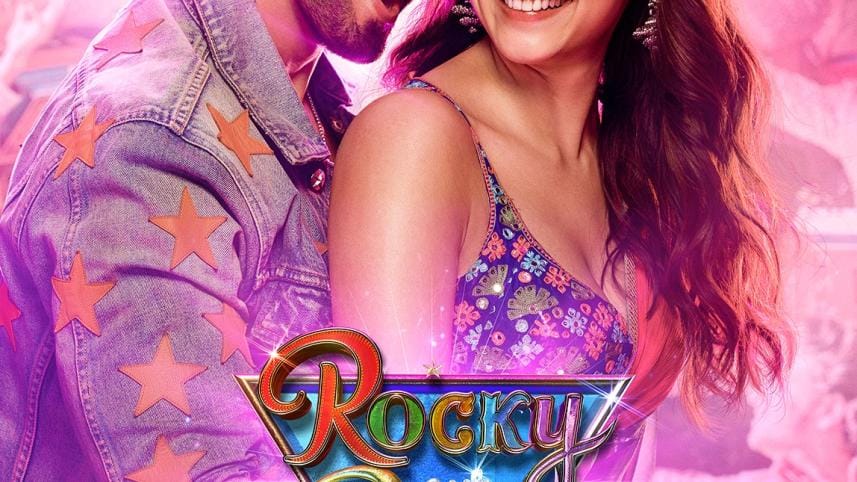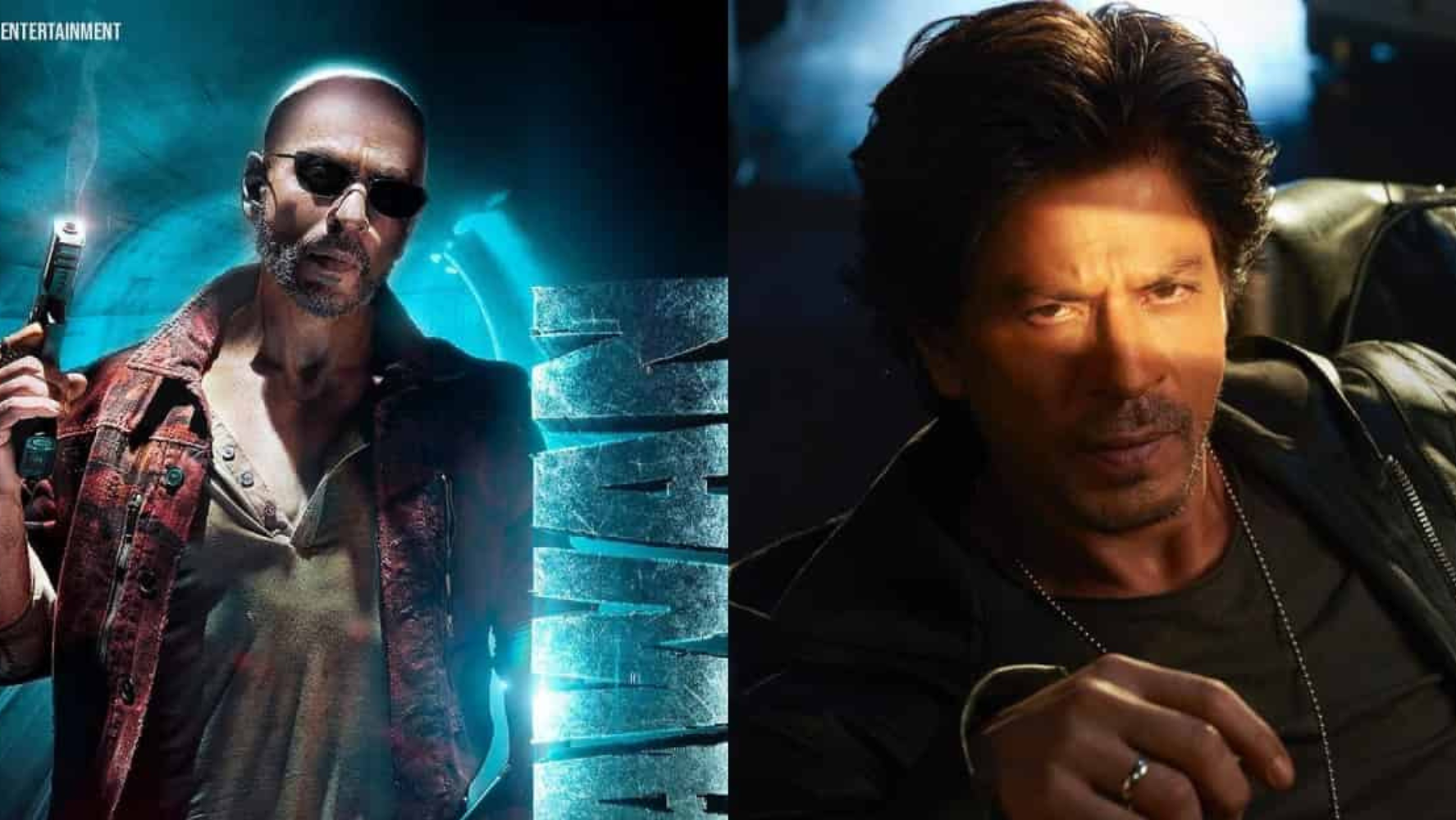Turning the tables on social conventions

This year "Rocky Aur Rani Kii Prem Kahaani" did not become 'just another glamorous Karan Johar film'. It turns the tide on hard-hitting themes of patriarchy, alpha male stereotypes and traditional norms by embodying ways in which two South Asian families better themselves in necessary ways.
Ranveer Singh and Alia Bhatt play the titular characters, Rocky Randhawa and Rani Chatterjee. Rocky is a typical Punjabi boy living in a grandiose mansion whereas Rani is an intellectual, Bengali woman. When Rocky proposes to Rani, the differences between their ideologies, families and cultural backgrounds become major hurdles. To understand each other's discrepancies better, they decide to live with each other's families for three months. Their relationship is put through the paces, as they struggle to find a common ground.
Upon her arrival at Rocky's house, Rani realises that the women there are often left demoralised and subjugated by the powerful men in their lives. But Rani does not let anyone discourage or scare her. She goes above and beyond to give Rocky's mother, Punam, the confidence she needs to pursue her singing career and teaches Rocky's sister how to advocate for herself and fight the stigmas associated with being overweight. The collective awakening of all the women in that household shows us how vital it is for women who have been subjugated for years, to raise their voices against the injustices inflicted upon them.
Rocky's introduction to the Chatterjee family helps him shed his intensely masculine conditioning. He does his fair share of enlightening the family about their double standards too. He points out how they mock and discard those who lack their standards of sophistication and knowledge in particular fields, but give passionate speeches about the ills of racism and sexism.
Kathak, a classical dance form usually reserved for women, is what Rani's father Chandon Chatterjee (Tota Roy Chowdhury) picks up to turn it into a career. It was not an easy feat as his father would reprimand and beat him for choosing something that is considered 'female-centric'. Chandon, however, pursues his dreams regardless of overbearing societal expectations, owing to his mother Jamini (Shabana Azmi), teaching him that talent has no gender. She is also unapologetic about expressing the mutual love she has for another man. The conventional stereotype of wives remaining loyal to abusive husbands is not something Jamini wants to abide by.

Karan Johar has always had a knack for portraying men in an unconventional way. The men in his films dance and dress in colours that are typically reserved for women. This time around, Rocky eventually embraces his love of dancing and pairs up with Chandon to dance to the song "Dola Re Dola" (traditionally performed by women) on the eve of Durga Puja. It was the perfect tribute to the song but in the most unexpected way. Every twirl and leap performed by Rocky and Chandon as they dance to the rhythm of "Dola re Dola" celebrates the freedom and joy of the art of dancing, instead of confining it within the narrow bounds of gender labels.
In a society where machismo and invulnerability are frequently praised, Rocky serves as a potent reminder that real strength comes from having the courage to be open, authentic and sensitive. He is the polar opposite of problematic characters like "Kabir Singh" who glorify toxic masculinity. Rocky is this generation's 'Raj'; championing progressive values and disavowing the macho myth, that prevents emotive expressions, by allowing himself to be at ease in his own skin. Whether it was through funny one-liners or the significant Kathak performance, Rocky confronts gender roles in patriarchy. It serves as an invitation for us to take off our respective armours and embrace our vulnerability in order to develop stronger bonds.
Rani proves that a woman can be ambitious and compassionate, powerful and sensitive, by pursuing her professional goals whilst fostering her relationships. In many scenes in the movie, including when she challenges the notion that taking care of the husband is one-sided, she addresses these conventions directly yet kindly. A welcome change from submissive and self-sacrificing representations of women in media is provided by Rani's sweet and determined navigation of obstacles and preconceptions.
Both Rocky's father Tijori and his grandma Dhanalaxmi are prime examples of patriarchal representations. Rani's father is a professional Kathak dancer who moved to a new city from his own state in order to support his working wife who is a senior English professor. In contrast, Rocky's father Tijori Randhawa is a staunch chauvinist, similar to Yashvardhan Raichand of "Kabhi Khushi Kabhie Gham". Dhanalaxmi is the relentlessly stern patriarchal conformist, who is responsible for pigeonholing toxic gender stereotypes.
By the end of the movie, Tijori however, undergoes a significant metamorphosis. He chastises his mother for raising him to become narcissistic and begs his wife for forgiveness. The fact Punam refuses to forgive him for years of anguish is even more empowering. Her refusal to pardon him allows her to regain the personal freedom she had given up during her years of servitude. As for Dhanalaxmi, she realised she was too proud to leave her beliefs behind but her letter to Rani confirms that she is able to let go of some of the boundaries she had restricted herself within.

Kanyadaan (a Hindu wedding ritual) signifies the giving away of a bride by her parents. The culmination of the movie dismantled many prejudices of Kanyadaan as reflected by the lyrical effervescence of the song "Kudmayi". Rocky's father Tijori is seen placing Rani's hand over Rocky's to demonstrate that he put his trust in the bride to take care of his son. Generally, Indian wedding traditions convey that the groom is supposed to take care of the bride. Again, conventionally, the women in a family help the bride in getting dolled up for the wedding but here, Rani's father helps her wear bangles and put the veil on her head.
Nostalgia is sparked throughout the movie through renditions of old songs and throwbacks to iconic Bollywood scenes. The movie depicts the beauty of the ordinary amidst the grand gestures and melodrama. The secret looks, the shared giggles, and the simple moments of intimacy between Rocky and Rani serve as a constant reminder that love grows in the ordinary. These brief moments become the lifeblood of relationships, prompting people to make the most out of situations, no matter how ordinary.
"Rocky Aur Rani Kii Prem Kahaani" is more than just a cinematic experience, it challenges current social standards by making audiences (us) reflect on the nuances of relationships. We are bound to be inspired to question unwritten social norms on our own adventures of love, reflection, and growth as we follow Rocky and Rani traversing their respective journeys.
Shaniz Chowdhury is a contributor.




 For all latest news, follow The Daily Star's Google News channel.
For all latest news, follow The Daily Star's Google News channel. 
Comments